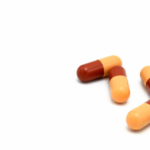
Tacrolimus is an immunosuppressant used with other medications to prevent the rejection of transplanted kidneys, hearts, liver, or lungs in organ transplants. It weakens the body’s immune system and helps the body accept the new organ as its own.
 ⁹
⁹
Administration
The following guidelines must be observed during the administration of Tacrolimus:
- The medicine should be taken orally, with or without food, usually every 12 hours or as directed by the doctor.
- Tacrolimus may be taken with food in case of nausea, although it may cause the body to absorb less of the drug.
- Capsules should not be crushed and can be taken by swallowing.
- Due to its chemical composition, only non-plastic cups, spoons, or oral syringes may be used while preparing or taking the dose.
- The granule mixture should not be prepared ahead of time or saved for later use.
Dosage
The following guidelines must be observed to ensure the proper dosage of the medication:
- The prescribed dose takes into consideration weight, blood test reports, medical condition and response to therapy.
- The medication dosage should not be increased nor stopped without the doctor’s approval.
- The medicine should be taken regularly. It is vital to take all the doses on time to keep the amount of medicine in your body constant.
- The dosage should be taken at the same time each day.
Precautions & Warnings
The following precautions and warnings need to be exercised while taking Tacrolimus:
- Tacrolimus capsules are not suited for patients with a hypersensitivity to Tacrolimus. Hypersensitivity symptoms include dyspnoea, rash, pruritus, and acute respiratory distress syndrome.
- Patients on immunosuppressants, such as Tacrolimus, are more likely to develop lymphomas and other malignancies, particularly of the skin. The risk is tied to the degree and duration of immunosuppression rather than a specific medication.
- Patients on immunosuppressants, such as Tacrolimus, are more likely to acquire bacterial, viral, fungal, and protozoal infections. These infections can have catastrophic, even deadly, consequences.
- Tacrolimus may produce a variety of neurotoxicity. The most severe neurotoxic effects include posterior reversible encephalopathy syndrome (PRES), delirium, seizures, and coma.
- Hyperkalaemia has been reported with Tacrolimus use. Serum potassium levels should be monitored.
- Tacrolimus treatment frequently causes hypertension, which may necessitate antihypertensive medication.
- While using this medicine, avoid eating grapefruit or drinking grapefruit juice.
- It is best avoided by pregnant and lactating women.
Side Effects
Patients may experience the following side effects when using Tacrolimus:
- Hearing loss and ringing in the ears.
- Dizziness, mood swings, signs of kidney problems such as a change in the amount of urine, and a pounding heartbeat.
- Unusual/sudden weight gain, trouble breathing, swelling ankles/feet and unusual tiredness.
- Pain in the limbs, easy bruising, muscle pain, and severe abdominal pain should be immediately reported to the doctor.
- Tacrolimus may cause diabetes.
- It may raise blood pressure also.
Shubham Pharmachem: Pioneering Healthcare
Shubham Pharmachem is a merchant export and distribution organisation with core competencies in Active Pharmaceutical Ingredients (API), herbal extracts, nutraceutical and nutricosmetic ingredients, and research-based formulations. It has provided its services to other pharmaceutical companies since the 1990s. The company caters to over 70 countries and is committed to delivering innovative solutions. High professional standards, combined with diversification and business expansion, have propelled the group turnover by 400% within ten years.
Committed to the highest standards of healthcare, Shubham Pharmachem has earned the trust of its national and global clientele through its strong company values of ethics, reliability, and responsibility.
For enquiry on other products, visit www.shubham.co.in
Disclaimer:
Shubham Pharmachem’s blog posts have been written with the information gathered from approved medical journals and websites online. Our research and technical teams strive to provide relevant information through such articles. We strongly advise readers not to consume or administer medication without prior consultation with their doctor.
References:
- https://www.webmd.com/drugs/2/drug-10097-6108/tacrolimus-oral/tacrolimus-oral/details
- https://www.drugs.com/pro/tacrolimus.html





